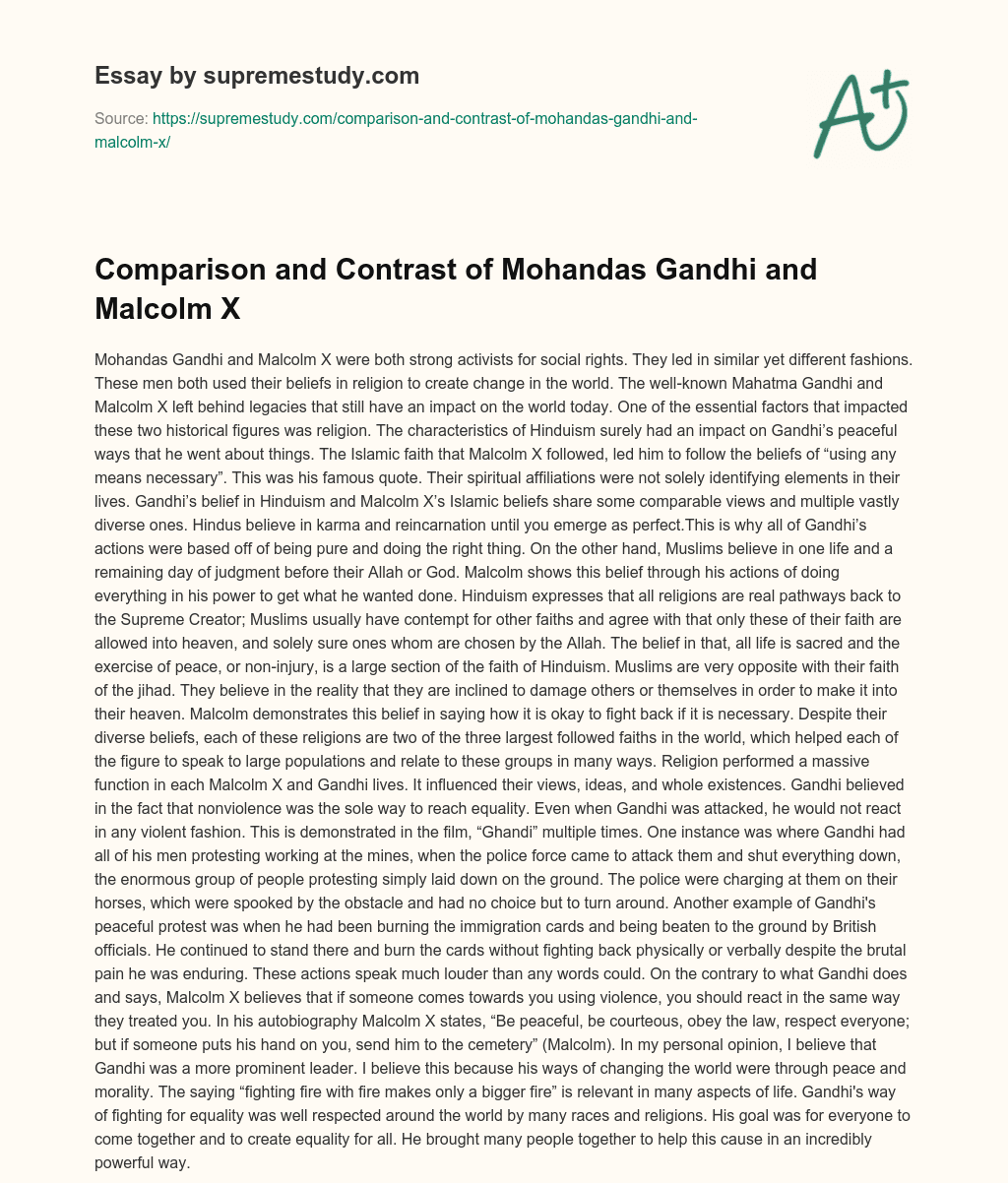Martin Luther King Jr. and Mahatma Gandhi were two influential social activists who made a significant impact on the civil rights and Indian independence movements, respectively. Both believed in the power of nonviolent resistance to bring about social change and advocated for universal brotherhood, justice, and self-sufficiency. King’s legacy is remembered for his efforts towards the passage of civil and voting rights acts, while Gandhi’s legacy is that of nonviolence, self-sufficiency, and social justice. Although their backgrounds and philosophies differed, both activists continue to inspire and influence people all over the world.
Martin Luther King Jr. vs. Mahatma Gandhi: A Contrast of Two Great Social Activists
Introduction
Martin Luther King Jr. and Mahatma Gandhi were two great social activists who dedicated their lives to fighting for the rights of the oppressed. Both were instrumental in the civil rights movement and the Indian independence movement, respectively. This article will discuss and compare the lives, philosophies, and legacies of these two great activists.
Early Life and Education
Martin Luther King Jr. was born in Atlanta, Georgia, in 1929. His father was a Baptist preacher, and his mother was a former schoolteacher. King excelled in school and went on to attend Morehouse College, where he earned a degree in sociology. Later, he completed his Ph.D. from Boston University in 1955.
Mahatma Gandhi was born in Porbandar, India, in 1869. He was the youngest of five children and grew up in a middle-class family. Gandhi studied law in London and returned to India in 1891. He became a barrister and practiced law for a few years before dedicating his life to social activism.
Philosophy and Strategy
Martin Luther King Jr. was a firm believer in the use of nonviolent resistance to bring about social change. He was greatly influenced by Mahatma Gandhi’s philosophy of nonviolent resistance and believed that peace could only be achieved through love, compassion, and understanding. King advocated for equal rights for African Americans and used nonviolent resistance to achieve his goals. His philosophy was centered on the idea of universal brotherhood and justice.
Mahatma Gandhi’s philosophy was also based on nonviolent resistance, which he called Satyagraha. He believed that nonviolent resistance was a powerful tool for social change and that it could be used to challenge unjust laws and policies. He also believed in the power of self-sufficiency and encouraged Indians to boycott British goods to challenge British rule.
Legacy
Martin Luther King Jr. is remembered as one of the most important figures in the civil rights movement. His work was instrumental in the passage of the Civil Rights Act of 1964 and the Voting Rights Act of 1965. King’s message of nonviolent resistance inspired people all over the world, and his legacy lives on today.
Mahatma Gandhi is regarded as the father of the Indian independence movement. His nonviolent resistance methods inspired movements all over the world, including the civil rights movement in the United States. Gandhi’s legacy is one of nonviolence, self-sufficiency, and social justice.
Conclusion
In conclusion, Martin Luther King Jr. and Mahatma Gandhi were two great social activists who shared a common belief in the power of nonviolent resistance to bring about social change. Both were instrumental in their respective movements and left an indelible mark on the world. While their backgrounds and philosophies were different, their legacies continue to inspire and influence people today.
